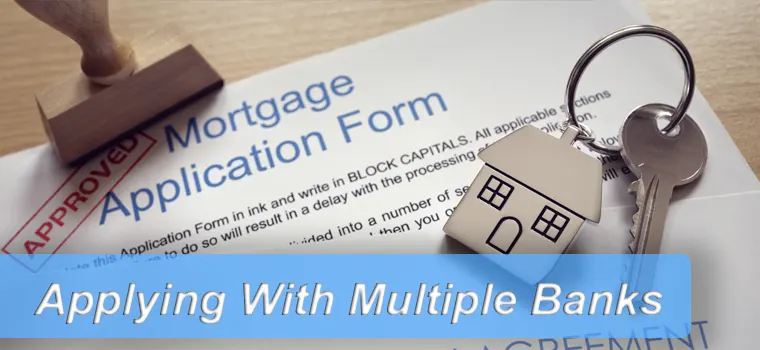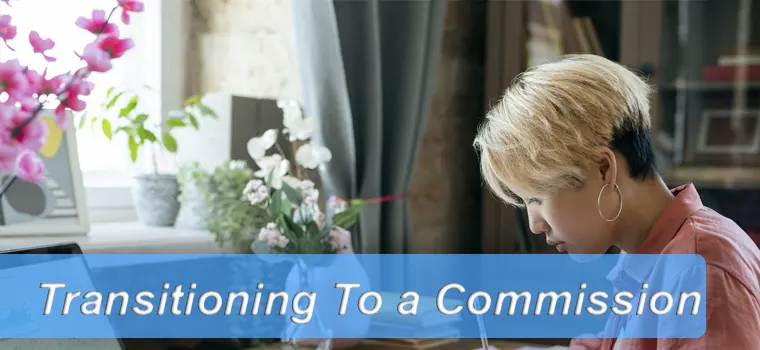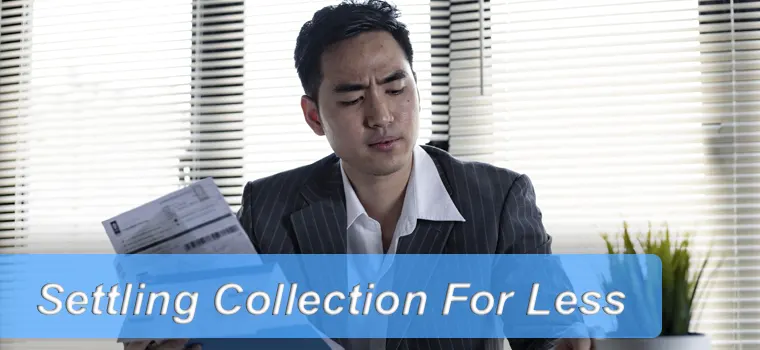11 Time-Sucking Mortgage Mistakes You’ll Wish You Could Erase
When buying a house in most cases you need to get a mortgage which takes from 3 weeks to 4,5 weeks. Sometimes refinancing (streamline refinance) might take as low as 2 weeks. We prepared for you a list of how to avoid mistakes and get into your dream home as soon as possible after your underwriter clears all required conditions and gets you a CTC (Clear to Close).
The below paragraphs will walk you through major mistakes that first-time home buyers make and they suffer getting their mortgage denied or delayed for weeks, months, and sometimes even years. Please go through all of them carefully so you are not surprised when talking to your loan officer which will represent your credit score, debts, liabilities, and employment in front of a mortgage underwriter.
1. Buying a Car/ Financing Furniture

Any big purchase can affect your qualification for a mortgage to buy your dream home. Lenders might add these big purchases (debt) to calculate your DTI (debt-to-income) ratio and you will need time to recoup your losses with extra money in your bank account. It’s critical to do your homework and understand how the house-buying process works. Purchasing a home is one of the most significant decisions you’ll ever make. Lenders are aware of this.
That’s why they consider every aspect before providing a mortgage commitment. They want to be certain that you will be able to pay the associated costs of home ownership. When lenders go through your financial history, it’s typical for prior financial decisions to come back to haunt you, as well as possibly prevent you from qualifying for a home loan. There is no difference between getting a loan to buy a car, furnace, expensive media home center, or an engagement ring. These loans will show up on your credit report and be ready to prepare your explanation when applying for a mortgage.
2. Forgetting To Pay on Time Your Mortgage

If you can’t make your payment by the end of your grace period, it’s officially considered a late payment. In the short term, this implies that you’ll be charged a late fee. The charge for being late is determined by the kind of loan you have. Some states limit how much interest may be extracted from customers who are delinquent in their payments.
The late charge is generally only applied to principal and interest on most sorts of loans. Let’s assume you have a $1,000 monthly mortgage payment based on principal and interest. If the late charge is 5%, you’ll lose 50 dollars in addition to your original payment.
Your payment history gets the most weight out of all of your credit factors, with a 35 percent weighting. So, what happens if your credit score goes down? The quick answer is that it limits your access to credit. However, looking at the real-world consequences may be more instructive. It’s tougher to acquire a new house or refinance an existing one when you have bad credit. Even if you meet the requirements for a mortgage, you might not qualify. You may also run into problems getting new credit cards. Credit cards that you can obtain at stores are included in this category. Outside access to credit and money has a variety of consequences. When you apply for jobs, employers will frequently check your credit. It may also affect your insurance rates.
If you are having difficulties making your mortgage payment because of a life change, the most crucial thing to remember is to contact your lender or servicer. A loan modification is when a lender agrees to decrease or suspend payments, or they may even work out a payment plan so that you do not get behind again.
You can utilize these alternatives to discover a solution that works within your budget. Your credit score will continue to suffer until your loan is current, even if you’re on a payment plan.
3. Being Cash Poor/Not Saving For a Down payment and Closing Costs

If you want to buy a home in 2022, you should be prepared to make significant payments. In addition to paying a 20 percent down payment, you’ll also need to have enough cash on hand to cover closing expenses, moving fees, repairs, and the first few months’ mortgage payments without depleting your emergency fund.
It can be frightening to first-time purchasers, which is why it’s vital to get a mortgage preapproval before diving into homeownership. It’s worth it to make sure you’re in a good financial position before getting started.
4. Defaulting on Your Student Loans

First-time homebuyers can get an FHA mortgage if they have defaulted on student loans. However, if they are in default with federal student loans, they must first exit default and clear the CAIVRS database before their mortgage lender will approve their FHA loan application.
A conventional loan can be taken out on a defaulted student loan. Because conventional loans are not backed by the federal government, they don’t require a CAIVRS report. However, to determine if you’re a credit risk, your lender must first evaluate you.
a credit score of 680 or higher a down payment a letter demonstrating how you’re dealing with the defaulted student loan (loan rehabilitation, settlement, repayment plan, etc.)
You should check out the student loan rules of Freddie Mac or Fannie Mae if you take out a conventional loan. Your student loans might have an adverse impact on your DTI ratio.
5. Applying For Multiple Loans / Hard Pulls

Hard inquiries hurt your credit score in the near term. While a hard inquiry will stay on your credit report for two years, it will generally only have an impact on your credit for a few months. Too many hard inquiries in a brief period of time might suggest that you’re looking for loans and credit cards that you won’t be able to repay.
When you apply for a car, personal or mortgage loan the bank will run your credit (do a hard pull) on your credit. Sometimes they run it multiple times. One way of protecting from this is doing a credit freeze. Every hard pull affects your score (sometimes from 10-20 credit points). Avoiding multiple credit pulls will save you time and headache when qualifying for a mortgage especially when your credit score it’s not great and you bouncing between the 580-620 credit range.
6. Starting a Business / Being Self Employed

Starting a business and quitting a job is not the best idea when trying to get a mortgage. These are totally different types of employment (you are transitioning from W2 to 1099).
In most cases, you need to have your business open for at least 2 years to be able to qualify for the loan. Holding on to that can save you 2 years of your life when trying to buy a house simultaneously. It’s a really bad idea to make the switch from an employee who gets W-2s to an independent contractor or start your own firm just before (or during) your mortgage application. Although there are certain loan programs that allow for just one year of self-employment history, most lenders want to see a two-year financial track record if you’re self-employed.
The 1099 owner’s income is calculated based on his or her previous year’s W-2 earnings, meaning the underwriter cannot properly calculate your revenue without your tax returns. This implies that while your mortgage application will be delayed until after you’ve submitted your taxes, you’ll need to pay any outstanding taxes before using your new self-employment money.
7. Transitioning From Regular Job To Commission one (example: Travel Nurse)

Any transitioning from a base salary (same income every month) to ‘unstable employment’ can extend the time for getting your loan approved and clear to close. In this example a travel nurse is treated like a 1099 job, its based on hours and contract (usually 13 weeks long) and you will need to write a good letter of explanation so your underwriter can understand your situation.
Any type of job which is seasonal, or contract is less appealing for a lender than a steady, full-time, salaried job where the employer never changes. So before transitioning to a commission job even better paid, we recommended holding on to this and buying a house first to not waste time on additional paperwork and to be sure you will qualify for it.
Income that is paid on a commission basis, whether it be as a bonus or over time, is usually reported over the last 24 months. If you don’t have a two-year history of earning this sort of money, it will be difficult to get a loan. Changing to this type of compensation structure might cause problems and even jeopardize your mortgage approval. Even if you left your previous job with a comparable salary structure, it might be difficult to determine whether it’s not the same role.
8. Full Time to Part Time Job

A second job with no prior history as the new position would be seen as a risk to the applicant’s primary employment, which is also a risk to your monthly mortgage payments. The lender will want to see that the borrower has worked all of his/her employment simultaneously for two years.
Most likely, the lender will demand W2s and verifications from all employers for the previous two years, and get a two-year average for any income earned from several occupations. A second or third job might help an applicant qualify for a mortgage. In addition to the borrower’s full-time employment income, the lender will consider part-time earnings.
9. Co-signing for Someone Else

There are drawbacks to having or being a co-signer. There are a few drawbacks involved with a co-signed mortgage loan. Taking on some of the responsibilities for the loan: the lender or other creditor can come to you to get money if he or she misses a payment. Your credit might be lowered when the main people will be late on a payment is reflected on your credit report. It’s a significantly worse credit dent if the individual enters into foreclosure. After co-signing a mortgage you might not be able to qualify for a new loan, however, iyt all depends on your DTI, credit score and money you have in your bank account.
10. Settling Collection For Less

Settling collection for less money will most likely lower your credit score instead of helping you. In most cases using $15,00 or $20,000 as a down payment will increase your probability of getting a loan and lower your DTI. Thanks to a higher down payment you are lowering your risk of being default on a loan. Lenders will like to see that and they will give you better interest rates based on the higher money you put down.
11. Changing Job

It is not necessary to quit your job while purchasing a house. Although it may be simpler to wait until after closing to make a change, the perfect career opportunity may appear in the middle of buying a home. If you switch jobs while purchasing a home, you must notify the lender and provide information about the transfer. In some circumstances, a new position may help your loan application. However, if you take a pay cut, move to a different sector, or start your own firm, your change of employment might jeopardize your closing. A pay cut, for example, would have an impact on your debt-to-income ratio (DTI). A mortgage lender may decide that home ownership is not the best option for your finances if your DTI is higher.
What happens if you change jobs while purchasing a house? If you move between employers while purchasing a property, you’ll need to supply a lot of paperwork to the lender. You must inform them of the job change and provide updated salary information. Furthermore, the lender may ask why you want to make this career transition. In the event that you provide the lender with all of the requested information, he or she will most likely reconsider your application.
The lender may proceed as if nothing has changed if the job change resulted in higher and more constant pay. If you are earning less money or have a less certain income, however, the lender may decide to cancel the closing. Is it true that changing jobs will jeopardize my mortgage approval? Changing jobs might affect your chances of a mortgage. It’s because when applying for a mortgage, a lender will carefully evaluate your earnings and employment history. If you make any job changes in the months before your mortgage application due to these criteria, you may be rejected. Even if you already have a pre-approval, a lender will need to examine your qualifications again for either a first-time house buyer or a refinance of an existing mortgage.


April 12, 2022 - 9 min read